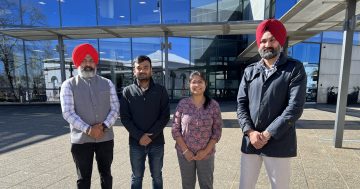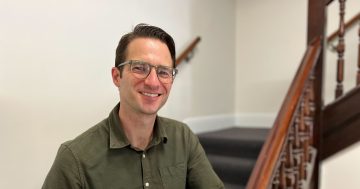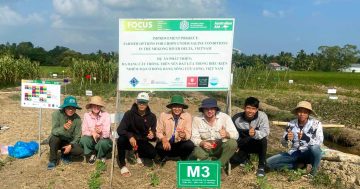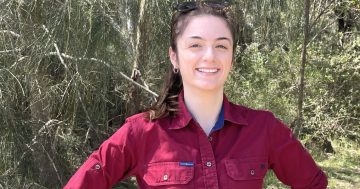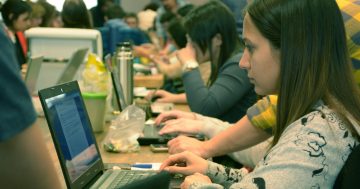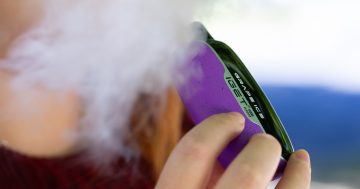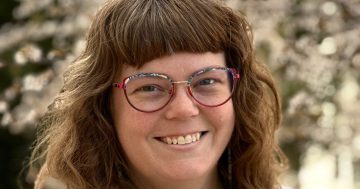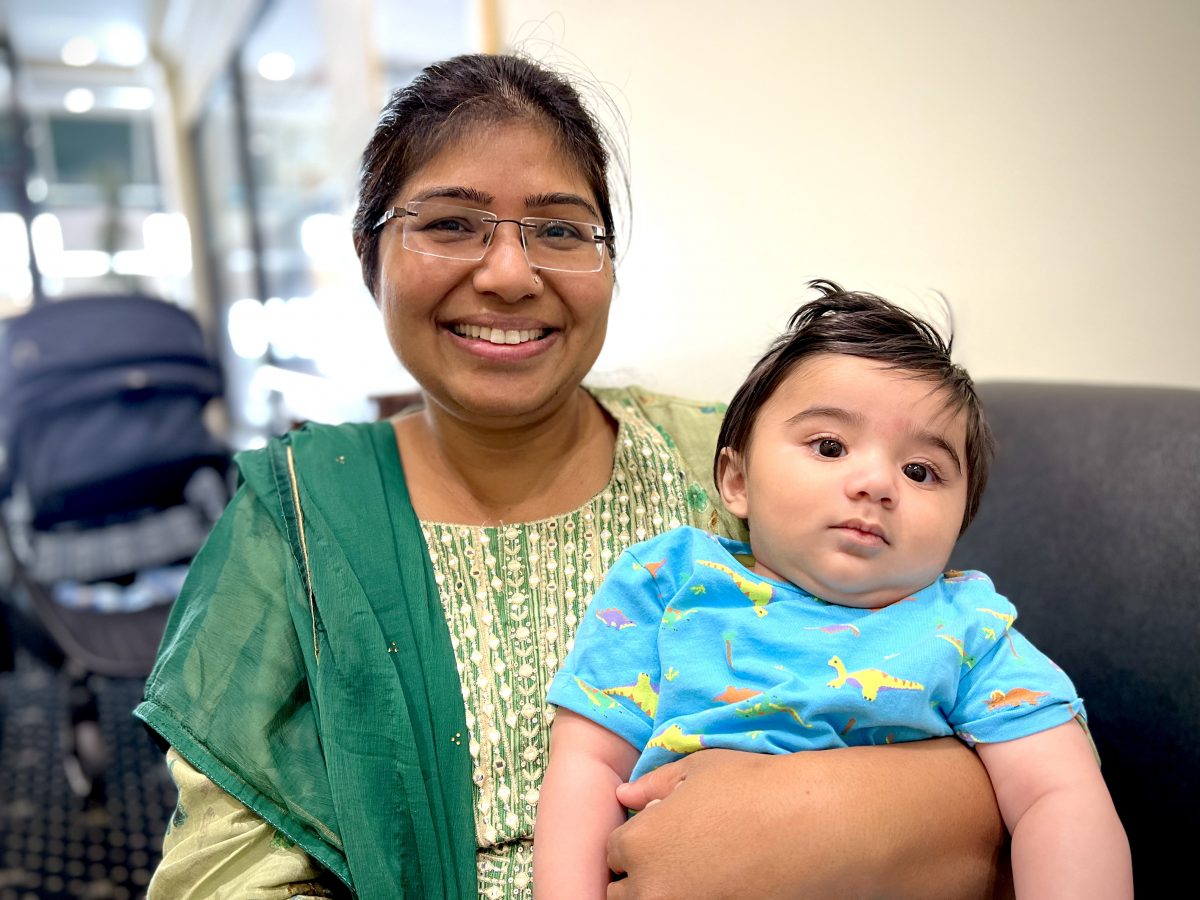
Dr Saba Nabi and baby Arham. Photo: Chris Roe.
Wagga’s Dr Saba Nabi wants to continue speaking up for the regions after being appointed to the Multicultural NSW Advisory Board.
“This is the first time they are having somebody from a regional base,” she says as baby Arham sleeps in a pram nearby.
“I’m not shy and I don’t play with my words, so I’m very vocal and I can be the voice of the regional people.
“And because I sit on so many different committees locally and regionally I feel that I can contribute very effectively.”
Dr Nabi arrived in Australia from India a decade ago after her husband received a PhD scholarship in biomedical science from Charles Sturt University.
She says the move to Wagga from Delhi with a population of 32 million people was a culture shock.
“It was a massive change, especially because we studied in university in Delhi, which 24/7 it’s happening,” she laughs.
“The canteen is open throughout the night and there are a lot of extracurricular activities.”
Used to a busy schedule, Dr Nabi soon began her own PhD and began volunteering at the university to help international students integrate into tertiary and community life.
She was the first international student elected to the university council and later won the state award.
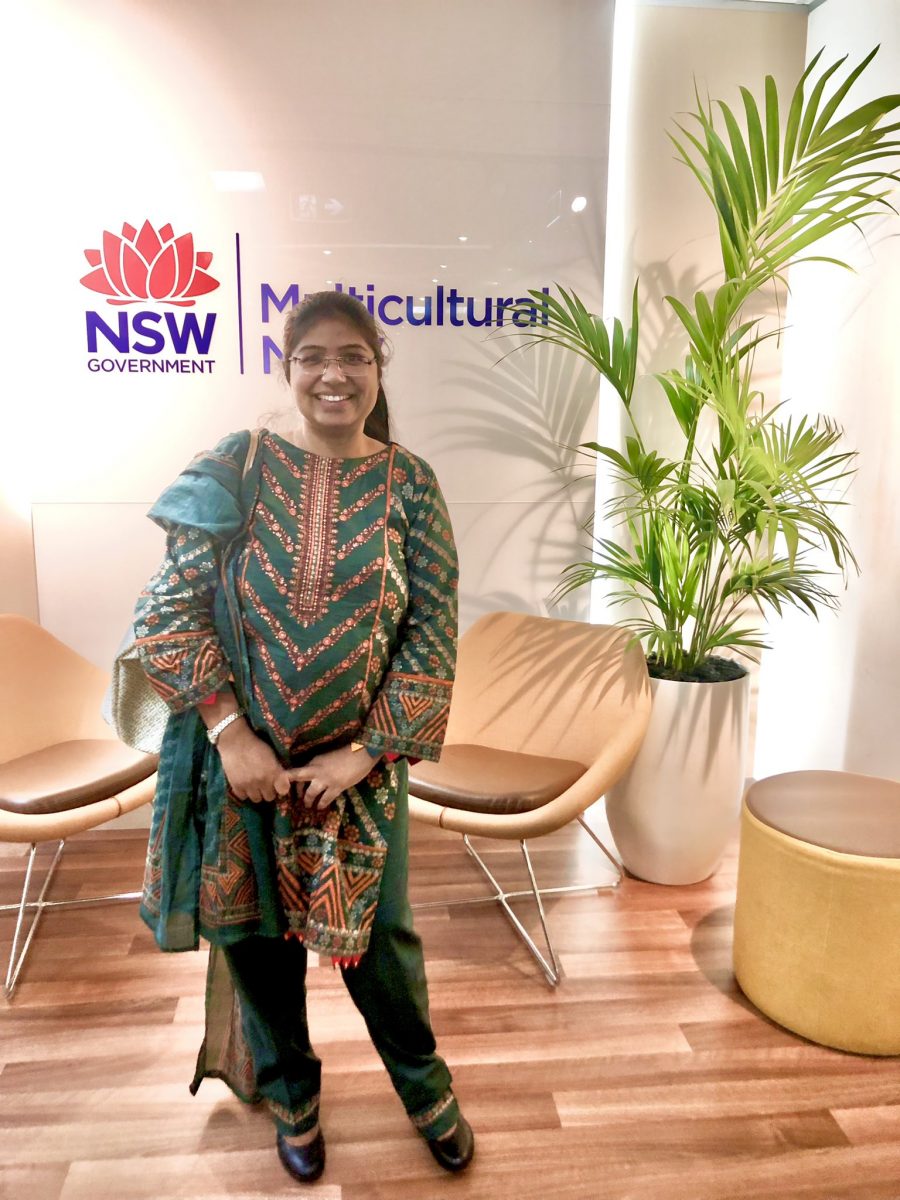
Dr Saba Nabi attended her first Multicultural NSW Advisory Board meeting on Friday (9 December). Photo: Twitter.
“I was really proactive from day one. I really wanted to engage because I was feeling homesick and I also really wanted to understand the Australian culture.”
Through her research, Dr Nabi improved mammography and cancer pre-screening tests for women from culturally and linguistically diverse backgrounds.
Despite her success, she says arriving in a regional centre as an unsponsored skilled migrant can be difficult as there are few support mechanisms in place.
“Speaking from my own personal experience, I didn’t get any support, because I came here as a PhD graduate and an international student.
“There aren’t any agencies which specifically work for the skilled migrants. I went to Centrelink when I was looking for a job but because they said that I’m a PhD graduate I don’t meet those eligibility criteria.
“So it was really challenging for me and my family to get a job and getting all the systems and all the information because most of the agencies which work here in Australia are with asylum seekers or refugees.”
Post-study, Dr Nabi continues to volunteer as an AFL multicultural ambassador, a member of the Federation for Ethnic Communities’ Councils of Australia, publicity officer for the CWA and as a board member of the Riverina Cancer Care Council.
She says she’s looking forward to serving on the Multicultural NSW Advisory Board.
“I do sit on their Regional Advisory Council, which was really good and I felt that they really listened to you,” she explains.
“You could sit on 100 committees, but if you feel that your voice is not heard, it’s just a checklist.
“I feel that they really do a lot of work and they really engage meaningfully.”
Dr Nabi hopes Wagga will be able to build on some of the initiatives already underway.
“This is a great spot in regional Australia and people are doing really great things,” she says.
“We have Red Cross and Multicultural Council of Wagga Wagga, and both are exceptionally great. The council is doing really good and recently Committee 4 Wagga have done a Welcome to Wagga function, which is great for interacting.
“I really wish that we could have a cultural hub where people can meet and greet. This is the thing which we are missing in Wagga.”
While proudly outspoken and grateful to “some really amazing people” who helped her along the way, she says not every migrant has the confidence to speak up.
“Not everyone is so vocal,” she says.
“Maybe they don’t want to break that cocoon or the shelter, which is why I tell all my friends from different nationalities that you need to mix and you need to interact.
“The first point is just interacting with your neighbours, you get to know a lot of things and also you will start to understand the different culture.”







